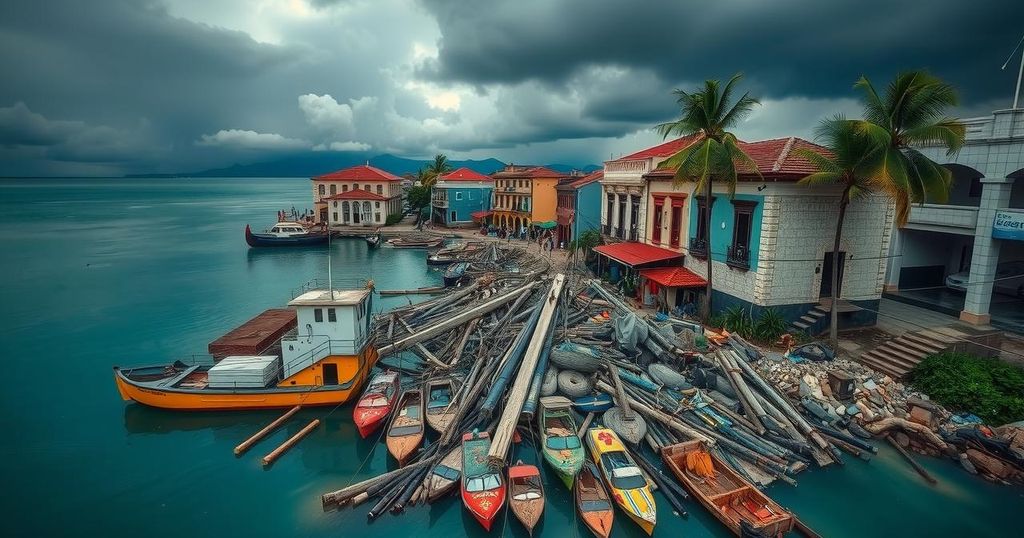Eastern Cuba was rocked by a 6.8 magnitude earthquake, compounding the aftermath of recent storms that caused extensive damage and power outages. Recovery efforts are underway as officials assess the impact of the quake, which has resulted in property damage but no reported casualties thus far. The region has faced ongoing challenges due to recent hurricanes that have exacerbated existing infrastructure issues.
A significant earthquake measuring 6.8 on the Richter scale struck eastern Cuba, exacerbating the challenges faced by residents who are still recovering from recent storms and ongoing power allocation issues. The U.S. Geological Survey reported that the earthquake’s epicenter was located approximately 40 kilometers south of Bartolome Maso. Fortunately, there have been no immediate reports of casualties or injuries. However, Cuban President Miguel Diaz-Canel confirmed that the quake has caused landslides, property damage, and disruptions to power lines in the affected areas of Santiago de Cuba and Granma. In the aftermath, residents of Santiago described the earthquake as one of the most intense they have ever experienced, with many reporting that buildings swayed during the tremor. Notable damage has been visible, with state media reporting collapsed roofs and significant structural harm to older buildings that are highly susceptible to seismic events. The surrounding region, including Jamaica, felt tremors from this recent event, marking another calamity in a series of natural disasters that have severely impacted Cuba’s already strained infrastructure. The earthquake follows Hurricane Oscar, which caused significant fatalities and devastation, and Hurricane Rafael, which resulted in widespread power outages affecting millions. Henceforth, recovery efforts are underway as officials prioritize saving lives and assessing the full extent of the damage inflicted by both the earthquake and the storms that have plagued the island in recent weeks. Amid these ongoing challenges, Cuba continues to grapple with economic insecurities and ineffective infrastructure, further complicating its resilience in the face of natural disasters.
The recent earthquake in Cuba is a critical event occurring in a broader context of natural disasters that have severely affected the island’s infrastructure and population. In particular, Cuba has faced a range of storms, including Hurricane Oscar and Hurricane Rafael, which have caused significant fatalities, displacement of residents, and loss of power. These incidents highlight the vulnerability of Cuba, where the economy is under strain and many buildings, particularly older structures, lack the necessary resilience to withstand such natural calamities. The cumulative impact of these disasters presents a substantial challenge for recovery efforts on the island.
In summary, the 6.8 magnitude earthquake that recently struck eastern Cuba has posed additional difficulties for a nation already grappling with the repercussions of recent powerful storms. The damage reported includes structural collapse and disrupted power supplies, and recovery efforts are being initiated to assess the situation. The confluence of these disasters emphasizes the urgent need for infrastructure development and economic stability in Cuba, where many residents are facing heightened vulnerability.
Original Source: www.aljazeera.com







